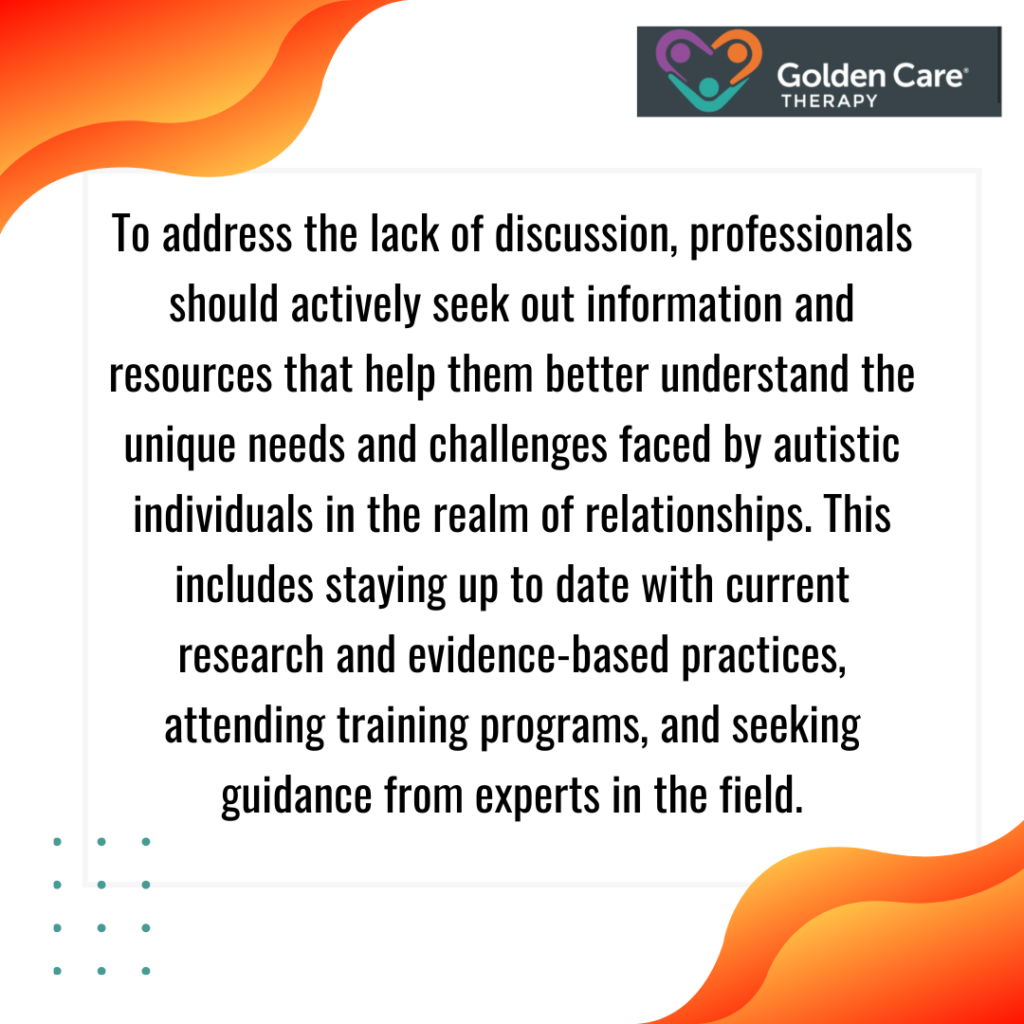Navigating intimacy can be challenging for many people, but for individuals with autism, it can bring unique experiences and considerations. Understanding autism and intimacy means recognizing that personal connections – whether emotional, physical, or both – might look different for each person on the spectrum. These differences aren’t necessarily barriers, but they do highlight the importance of clear communication, patience, and mutual respect.
In this article, we’ll explore the key factors that influence intimacy for individuals with autism and offer insights on how to create healthy, meaningful relationships.
Desire for Relationships
Contrary to common misconceptions, being autistic does not mean a person is uninterested in sex or lacks a desire for relationships. Many individuals on the autism spectrum have a natural inclination for romantic relationships, sexual relationships, or both.
However, it is important to note that their approach to relationships may differ from the traditional or heteronormative values society often associates with intimacy.
Autistic individuals often have their own unique perspectives on intimate and sexual relationships. They may not conform to societal expectations and may have different preferences when it comes to partner selection, communication, and expressions of intimacy.
It is crucial to respect and understand their individuality and support their journey in forming meaningful connections.

Impact of Core Autism Symptoms
The core symptoms of autism, such as sensory sensitivities, repetitive behaviors, and difficulties with social communication and interaction, can have an impact on sexual behaviors and intimate relationships.
Some individuals on the autism spectrum may experience hypersexual and paraphilic fantasies more frequently than their neurotypical counterparts. This can be attributed to differences in sensory experiences and the way they process information.
Additionally, individuals with ASD may face unique challenges when it comes to navigating intimate relationships. They may struggle with delayed maturity of sexuality, difficulty interpreting social cues, and challenges in establishing the meaningful adult social relationships necessary for developing sexual and intimate relationships.
It is important to provide appropriate support, education, and guidance to help individuals on the autism spectrum navigate these challenges and foster healthy relationships.
It is also crucial to recognize that individuals with ASD are at an increased risk for physical and sexual abuse. According to research, the reported rate of sexual abuse among children with disabilities, including autism, is 2.2 times higher than that of children without disabilities.
This highlights the importance of creating a safe and supportive environment, educating individuals with ASD about personal boundaries, and providing resources for reporting and addressing abuse.
Challenges in Sexual Education
Individuals with autism face unique challenges when it comes to sexual education. Limited knowledge and barriers to learning can significantly impact their understanding of intimacy and relationships.
The way sexual education is currently taught in curriculums may not cater to the diverse learning styles of individuals with autism. Classrooms often lack accommodations for neurodivergent individuals, creating significant barriers to accessing comprehensive sexual education.
This limited knowledge can lead to misconceptions, misunderstandings, and difficulties in forming healthy relationships.
Moreover, the lack of information and discussion on sexuality and intimate relationships among individuals with autism is a result of prejudice, discrimination, and stigmatization. Professionals may be hesitant to openly discuss how neurodivergent conditions impact the likelihood of relationships occurring, further contributing to the limited sexual education available for individuals with autism.
Addressing Taboos and Prejudice
As far as intimacy and relationships in autism go, there is often a lack of open discussion due to prevalent taboos and prejudice. Prejudice, discrimination, and stigmatization contribute to the limited information available and the societal discomfort surrounding the topic of sexuality and intimate relationships among individuals with autism.
Talking openly about sexuality and intimacy among individuals with autism is still considered taboo in many societies, particularly when it comes to people with disabilities. This lack of discussion creates a significant barrier to understanding and addressing the unique needs and challenges faced by autistic individuals in the realm of relationships.
The scarcity of open dialogue prevents individuals with autism, their families, and their caregivers from accessing the information and support they need to navigate the complexities of intimacy.
It also perpetuates a lack of awareness and understanding in the broader community, leading to further marginalization and isolation for individuals on the autism spectrum.
Professionals working with autistic individuals play a crucial role in addressing taboos and prejudice surrounding autism and intimacy. By actively engaging in conversations and providing support, these professionals can create a more inclusive and accepting environment.

Equipping themselves with knowledge and understanding allows professionals to play a pivotal role in initiating open and supportive discussions about autism and intimacy. They can help individuals with autism and their families navigate these topics, provide guidance on healthy relationship development, and empower autistic individuals to make informed decisions that align with their own desires and values.
Sexual Education for Autistic Individuals
Autistic Individuals may face challenges in understanding appropriate sexual behaviors and boundaries. Some behaviors, such as taking off clothing in public or touching others inappropriately, can lead to interpersonal and legal consequences.
Therefore, it is essential to implement behavioral and educational interventions to prevent undesired outcomes.
One approach to preventing undesired behaviors is through structured and individualized sexual education programs. These programs should focus on teaching individuals with ASD about appropriate social boundaries, personal privacy, and respecting the boundaries of others. By providing clear guidelines and reinforcing positive behaviors, individuals with ASD can learn to navigate social situations appropriately.
Additionally, it is crucial to address the specific needs and challenges of individuals with ASD when it comes to sexual education. Tailored interventions, such as Social Stories™ or video modeling, can be effective in teaching appropriate behaviors and helping individuals understand social expectations.
It’s also worth noting that sexual education for autistic individuals goes beyond preventing undesired behaviors; it also plays a vital role in promoting healthy sexual development. Providing accurate information about sexual health, relationships, and personal values is essential in empowering individuals with ASD to make informed decisions and engage in healthy relationships.
A comprehensive sexual education program for individuals with ASD should cover a range of topics, including basic facts about sexuality, understanding emotions, consent, and developing healthy relationships. It is important to provide information in a clear and structured manner, using visual aids, social stories, or other visual supports to enhance understanding.
Education on sexual health and safety is also crucial. Teaching individuals with ASD about sexually transmitted infections, contraception, and the importance of consent can help them make informed choices and protect their well-being.

The Key Takeaway
In the journey of understanding autism and intimacy, remember that every relationship is unique, just like every individual on the spectrum. Patience, open communication, and mutual respect are key to building meaningful connections. With understanding and care, intimacy can thrive in a way that honors the needs and boundaries of both partners.
Embrace the differences, celebrate the strengths, and know that love and closeness are possible for everyone. If you’re looking for support, Golden Care Therapy offers comprehensive services at its ABA center in New Jersey, New York, Georgia, and Indiana. Contact us today to learn more about how we can help you or your loved one thrive.



